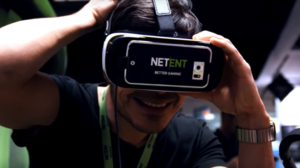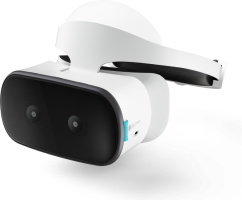The cost-effective appeal of VR casino gambling for government regulators.
 For the last couple of years, we’ve heard time and again that VR casinos are going to be the next big thing. I’ve written several pieces on the topic, myself. Now, there’s a whole new reason why virtual reality gambling is bound to happen.
For the last couple of years, we’ve heard time and again that VR casinos are going to be the next big thing. I’ve written several pieces on the topic, myself. Now, there’s a whole new reason why virtual reality gambling is bound to happen.
In Canada, every province where casinos are found has a special body of government to oversee them. In British Columbia, it’s the BC Lottery Corp. There’s the Ontario Lottery and Gaming Corp, Loto-Quebec, Atlantic Lottery Corp – you get the idea. These are the regulators of all things gaming within their respective province.
Hosting casinos in Canada cost each provincial government money to build and operate. But what if they didn’t have to build it? What if they didn’t have to spend years looking for the right location? Getting city council to approve a casino is hard enough. Finding just the right spot on the map is even harder, often combated by residents who don’t want to deal with traffic congestion and elevated crime rates.
VR Casino Gambling to the Rescue
VR casinos solve all of these issues. They are much cheaper. They don’t require construction or residential approval. There’s no need to install physical machines or tables that depreciate over time. Player can access the games from home, actually minimizing traffic.
What government wouldn’t want to invest in this?
Just this week, the BCLC revealed that it’s already in negotiations with a Vancouver software group to develop a virtual reality ‘escape room’ game. That contract, once finalized, will cost the government $250,000. If that sounds expensive, think again. A land-based casino can cost hundreds of millions to build, and that’s just in construction fees.
The VR escape room is just the beginning, though. Virtual casino games are also on the agenda, but that will take a lot more time. Getting the approval for a new gambling vertical is a lengthy process.
Lara Gerrits, a spokeswoman for BCLC, told CTV News on Tuesday:
“Further development, testing and approvals from our regulator, the Gaming Policy and Enforcement Branch, are required. Additionally, the Gaming Control Act stipulates that the minister responsible must provide written approval for new games or lottery schemes before they go into operation.”
VR Casino Games Already a Reality
The idea of virtual reality casinos is nothing new. In fact, they’ve existed for at least three years. They just haven’t become too popular yet. Like most new online gambling concepts, new technology, and the people who buy it, have to catch up to what’s being developed.
 Many households already own VR headsets, but they aren’t used regularly. The technology hasn’t gone mainstream yet. But it will. 10 years ago, only a tiny fraction of the world had smartphones, but look at us now? And VR tech is already progressing rapidly.
Many households already own VR headsets, but they aren’t used regularly. The technology hasn’t gone mainstream yet. But it will. 10 years ago, only a tiny fraction of the world had smartphones, but look at us now? And VR tech is already progressing rapidly.
Lenovo just debuted the very first stand-alone VR headset this month at CES 2018. Called the Mirage Solo, this all-in-one device doesn’t require connecting or tethering to a mobile device, computer or game console. It has its own internal storage and WiFi (and lots of other cool specs) built right in.
The virtual casino realm is here, and before long, it’s going to be huge. Grab a headset, have a seat, and tap a button on the remote to enter the amazingly realistic world of VR casino gambling!





